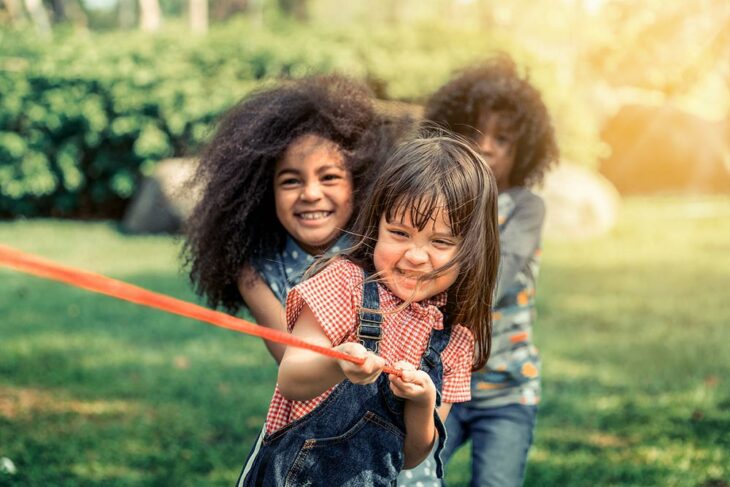In life, people who have a strong social-emotional skills are better equipped to navigate ups and downs and make complex, multifaceted decisions. The same goes with school. Students who have the skills, attitudes and behaviors that enable them to thrive academically are equipped for lifelong learning and happiness.
The Collaborative for Academic, Social, and Emotional Learning defines social emotional learning, or SEL— as the process through which people acquire and apply the knowledge, skills and attitudes to:
- Develop healthy identities
- Manage emotions
- Achieve personal and collective goals
- Feel and show empathy for others
- Establish and maintain supportive relationships
- Make responsible and caring decisions
Helping your child develop social-emotional skills and embrace social and emotional learning is important in your quest to help your child achieve. Here are the five key areas of social emotional learning and tips to help your child cultivate these aptitudes:
SELF-AWARENESS – This is children’s ability to understand their own thoughts and emotions and how their behaviors influence the world around them. You can build your child’s self-awareness with open communication and dialogue about emotions, values, ideas and common societal topics like prejudice. Encourage your children to pursue interests and embrace the mindset that they are never done learning (a growth mindset).
SELF-MANAGEMENT – As children grow into young adults, they must learn how to manage their own emotions and behaviors, especially when it comes to achieving goals. As a parent, you can help your children hone planning and organizational skills. You can encourage them to take initiative on their own when they are striving toward something and remind them that all difficult endeavors require discipline.
RESPONSIBILITY – Decision-making is a part of life, and children must learn how to make good, responsible choices. Show your children through example how to be open-minded, make reasoned judgments and analyze ideas, information and facts. Remind them of their responsibilities at home and hold them to high expectations as a citizen, student, family member and friend.
RELATIONSHIP SKILLS –Navigating any relationship requires good communication, the ability to resolve conflicts, listening skills and more. Show your child what good communication looks like. Talk about how to develop and maintain positive relationships in all areas of life.
SOCIAL AWARENESS – Social awareness involves many things: empathy, understanding others’ perspectives, feeling compassion for others, understanding social norms in different settings and more. In school, it’s obvious why this is important. Students must be able to listen to others, have discussions and understand how organizations and systems can influence behavior.
While students’ acquisition of academic knowledge is obviously important, so are their soft skills — such as decision making, teamwork and critical thinking. In college and life, people must be able to work with others successfully and communicate. They must prioritize their work and be trustworthy and reliable. Social emotional learning is an important part of education and helps students become happier, more resilient and more well-rounded students.
The Huntington Learning Center Gulfport is located at 8950 Lorraine Road, Unit E, Gulfport. Contact the center at (228) 206- 2353.



